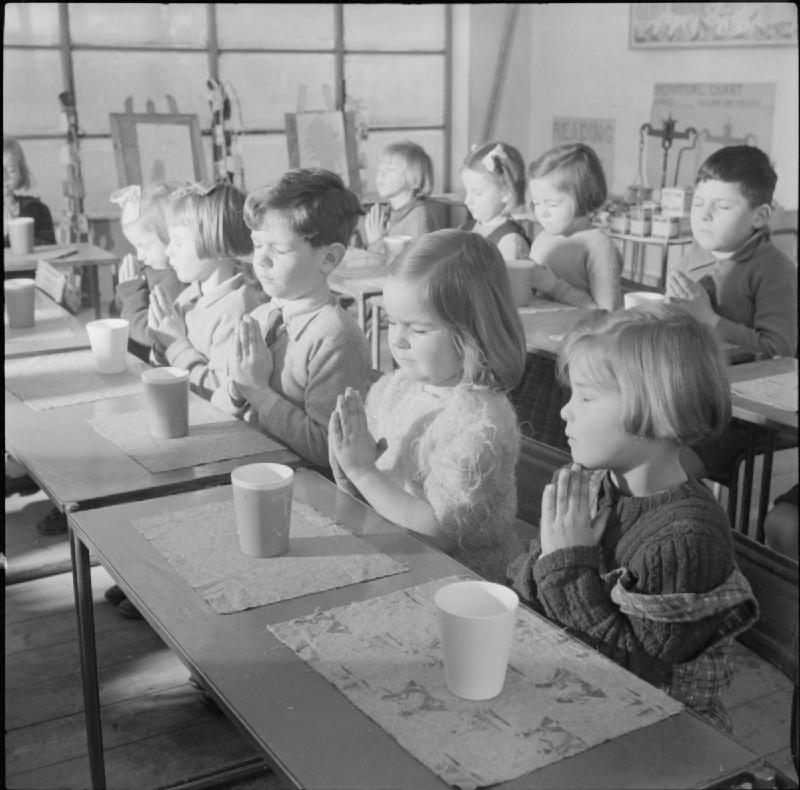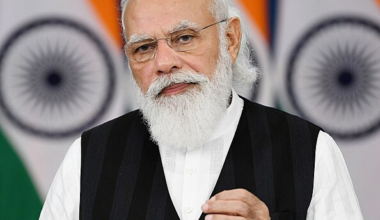
The Labour leader, Keir Starmer, raised eyebrows recently by suggesting that Labour in power would be ‘even more supportive of faith schools’ than the current government.
Given the current administration’s enthusiasm for faith-based education, it is hard to see how this could be achieved in practice. It may have been an empty gesture, a case of playing to the gallery – Starmer was speaking during a visit to a state-funded faith school. But if he is serious, the implications are worrying.
Labour’s uncritical support for religiously segregated education is alarming – especially as religiously segregated often means, in practice, racially segregated too. In pluralistic societies, inclusive secular schools can be powerful agents of social integration, forging connections that transcend the boundaries of race and religion. In a world riven with religiously motivated conflicts and tensions, it is unwise for the state to fund a form of education that restricts exposure to diverse worldviews and to critical thinking.
Britain’s Muslim, Jewish, Sikh and Hindu faith schools are largely monocultural zones – silos of segregation that do nothing to foster greater social cohesion. Interfaith work between schools is often offered as a remedy to this, but it is a poor substitute for a school in which children of different backgrounds are educated together and mix with one another every day.
Earlier this year the UN Committee on the Rights of the Child urged the UK to end the use of religion as a selection criterion for school admissions. Starmer’s promise not to ‘tinker’ with faith schools signals his intent to do nothing about discriminatory admissions.
The evidence is clear, though, that religious selection also acts as a form of socio-economic segregation. Recent research additionally reveals that Church of England and Catholic primaries ‘serve as hubs of relative advantage’, less likely than community schools to admit children with special educational needs and disabilities.
It seems that Labour’s promise to ‘break down the barriers to opportunity’ only applies where it will not upset religious interests.
Probably the biggest clash between education authorities and faith schools in recent years has been over the introduction of relationships and sex education (RSE) – particularly the requirement for this to be LGBT-inclusive. Catholic, ultra-Orthodox and Muslim activists have objected to requirements imposed on schools to teach pupils about sex, the existence of same-sex relationships and the legal rights of LGBT people. Good quality RSE needs to be evidence-based, impartial and free from ideology of all kinds. It would be shameful if Labour’s keenness to appease religious groups were to allow faith-based prejudice to undermine the subject, leaving faith school pupils in the dark and young LGBT people feeling isolated.
The 50 per cent admissions cap is another area where religious groups are lobbying for privileges. This is the rule that where newly established academies with a religious character are oversubscribed, half of their places must be allocated without reference to faith. It is the only meaningful effort we have seen to promote inclusivity and address the problems caused by faith-based schooling. However, Catholic and Jewish groups have been lobbying to get it abolished. In 2018 they almost succeeded, but Theresa May’s government eventually backtracked in the face of vigorous opposition. It would be bizarre for any party to resurrect a regressive policy that risks increasing levels of discrimination and making integration less likely. Yet under the Conservatives, the cap remains under review.
When it comes to faith schools, all the major parties appear minded to maintain the status quo.
The Liberal Democrats have typically advocated a more inclusive approach to state education. In 2017 the party passed a policy to support an end to religious selection in publicly funded schools. But the policy failed to appear in the 2019 manifesto – and there was no mention of reform to faith schools in the party’s ‘core policy offer’ on schools that was set out at their conference in September.
The Greens, meanwhile, are much more upfront about their vision for an inclusive and secular education system. Their education policy is underpinned by sound secularist principles and includes ending the state funding of faith schools, removing religious opt-outs from equality legislation and abolishing the archaic requirement on schools to provide daily acts of collective worship.
The Greens would also prohibit schools from delivering a form of religious education that ‘encourages adherence to any particular religious belief’.
England’s outdated model of religious education is certainly ripe for reform. Faith schools still teach the subject ‘within the tenets of their faith’, which means the subject is often confessional in nature, rather than objective, critical and pluralistic. Even in secular schools, RE remains compulsory yet separate from the national curriculum – and heavily influenced by religious interest groups, through bodies called standing advisory councils on religious education (SACREs), which determine the syllabus for each local area.
Both Labour and the Lib Dems have promised to review the curriculum if they form the next government. This ought to include replacing religious education with a more relevant subject that promotes critical thinking while giving pupils a solid understanding of diversity of belief and non-belief among the UK population and the rights and responsibilities of citizenship. But whether either party will be bold enough to wrest this area of the curriculum away from vested religious interests is another question.
Whichever party forms the next government, it is imperative that they tackle the scourge of unregistered schools. An estimated 6,000 children are being systemically undereducated in illegal and often unsafe ‘schools’ that teach a narrow, religion-based curriculum without oversight or adequate safeguarding.
This year, the government scrapped proposed legislation which included measures to address this issue, such as a register of children not in school and new powers for Ofsted to act against schools which operate covertly. Despite junking the Schools Bill, in which these proposed measures were contained, the government insists that it remains committed to the bill’s objectives concerning unregistered schools. Labour has also pledged to crack down on unregistered schools but suggested it would take a ‘different approach’. What that may be remains to be seen.
But it is not enough to focus solely on the illegal sector. The more diverse our society becomes, the more integrated it needs to be. Faith schools build division into the system by separating children along the lines of their parents’ culture and religious belief, encouraging them to identify with this from an early age, rather than allowing them to make up their own minds about who they are and what they believe. Schools that educate children together without imposing a religious framework on them or discriminating against some in favour of others are the only model that public money should support.
There is also a big question mark over the sustainability of the Church of England’s role in state education. Church attendance is at a record low. Data from the latest British Social Attitudes survey suggests that just three per cent of those aged 18-24 – tomorrow’s parents – would describe themselves as Anglican. Yet the Church of England runs a quarter of primary schools in England and is the biggest sponsor of academies. Despite all the talk about faith schools offering choice, it is already the case that in many areas of the country, families have little or no option other than a church school.
The Church of England is currently targeting schools as part of its plans to ‘double the number of children and young people who are active Christian disciples by 2030’. It is a sign of how privileged the established church is that so few politicians appear willing to question its exploitation of state schools as mission fields for Anglican evangelism. The more pluralistic and secular Britain becomes, the less appropriate will it be for churches to exert influence over state education.
It is unfortunate that, for the upcoming general election at least, faith schools are unlikely to be on the agenda. But the case for inclusive, secular education will only grow stronger. Politicians cannot file it away in the ‘too difficult’ department forever.
Enjoy this article? Subscribe to our free fortnightly newsletter for the latest updates on freethought. Or make a donation to support our work into the future.
On religion in schools, see further:
Faith in education, by Emma Park (New Humanist)
Religion and belief in schools: lessons to be learnt, by Russell Sandberg (Freethinker)
Post-Christian Britain and religion in schools, National Secular Society podcast
Unregistered (illegal) schools with Eve Sacks, NSS podcast
A new Catholic school for Peterborough, NSS podcast
The Church of England’s influence over education, NSS podcast








1 comment
While I have a lot of sympathy with the trust of this argument, particularly on the siloing and segregation that schools selected on a faith can cause, I am slightly concerned that you are also smuggling in an ideology that, though you may believe is better than faith-based ideology, is an ideology none the less.
I don’t believe you can be neutral on this matter, there is no view from nowhere. For example, when you say that ‘Good quality RSE needs to be evidence-based, impartial and free from ideology of all kinds.’ Is that not also an ideology? Why should we say to the religious, and their children, should subscribe to our values (free-thinking, LGTBQ affirmative, not loving/worshiping God?). Are we not then universalising our view and applying it through the back door, so to speak?
It seems to me, that if you want to be truly libertarian and tolerant, this must include allowing religious schools. If not, you are merely smuggling in your own worldview and imposing it. Tolerance means accepting those who are intolerant (unless you are Herbert Marcuse I guess).
Having said that, I am totally open to the idea of saying secular education is superior and should be enforced, but I don’t think it is fair to say that this is standing for liberty.
I hope that is a fair assessment and please do correct me if I have misrepresented your view. Thanks, I very much appreciate the article.
Your email address will not be published. Comments are subject to our Community Guidelines. Required fields are marked *
Donate